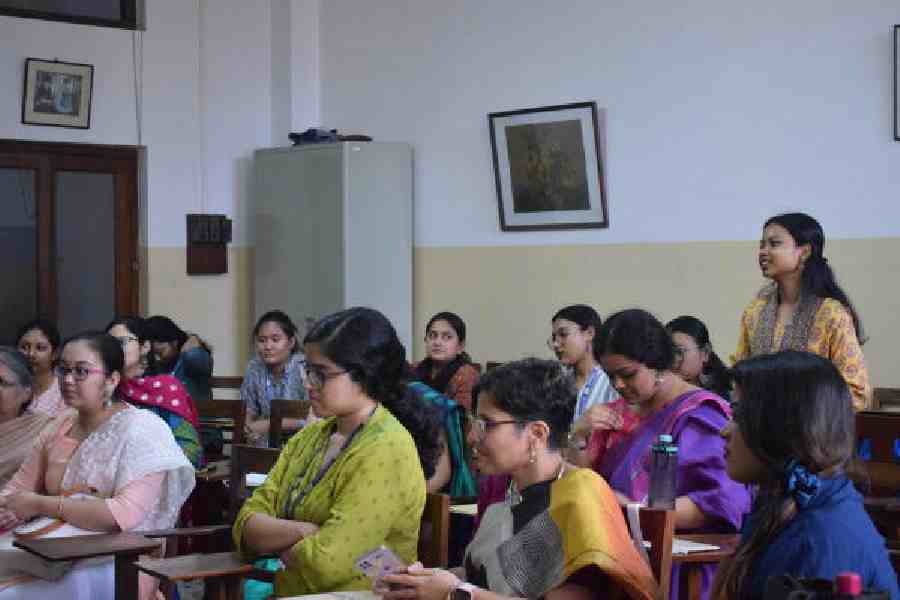Down Memory Lane


Loreto College Calcutta’s departments of English and history organised an international conference titled Mapping Memory: History, Texts and Cultures last month. The two-day meet sponsored by the Indian Council of Social Science Research (Eastern Regional Centre) highlighted how acts of remembering and forgetting operate as individual and collective representations of the past and constitute a range of cultural resources for personal, social and historical identities. This point was emphasised by Avishek Parui, associate professor at IIT Madras and founding chairperson of the Indian Network of Memory Studies, who delivered the keynote address.
At the first plenary session was a scholarly presentation by Shukla Sanyal, retired professor of history at Calcutta University. She observed that both history and memory seek to map human experiences.
The panel on memory and Western poetry discussed Seamus Heaney’s use of memory as a “loop”, the trope of memory in Elizabeth Bishop’s works and the “nostalgic aesthetics” of Tyler Knott Gregson’s “Insta-poetry”. Another panel drew attention to the role of oral traditions in nation-building, how cultural memory is constructed in Adivasi literature and Munda folklore of Jharkhand, and how performing traditions help preserve indigenous culture among the Kudmi Mahatao community of Jhargram.
Post-lunch sessions included enthusiastic discussions on postmemory global bio-politics with reference to Japanese-
Canadian writer Joy Kogawa’s novel Obasan, the role of memory in Michael Ondaatje’s novels and an engagement with immigrant children’s negotiation with identity.
The second plenary session had a moving presentation by Chilean human rights advocate Roberta Bacic, who demonstrated how arpilleras or wall hangings and quilts can challenge archival silence.
The second day had plenary sessions by Prachi Deshpande of Calcutta’s Centre for Studies in Social Sciences and Ira Bhaskar, retired professor of cinema studies. Deshpande spoke on Marathi writer Durga Bhagwat’s “false memoir”, while Bhaskar spoke about the role of cinema in the creation of benign and malignant memory.
This was followed by papers on memories of Partition and how they shaped the sensibilities of Bengali Muslim women, trauma and a sense of a lost home in the writings of Kashmiri Pandits, and field trips and collective pasts in the writings of schoolchildren in colonial India.
There were two papers on how memory works through sound, while memory commodified as souvenir in the context of the Holocaust also made for an interesting topic. With participants from different parts of India as well as abroad, the conference opened up new avenues of enquiry.
Srimoyee Basu
English Honours, third year, Loreto College, Calcutta